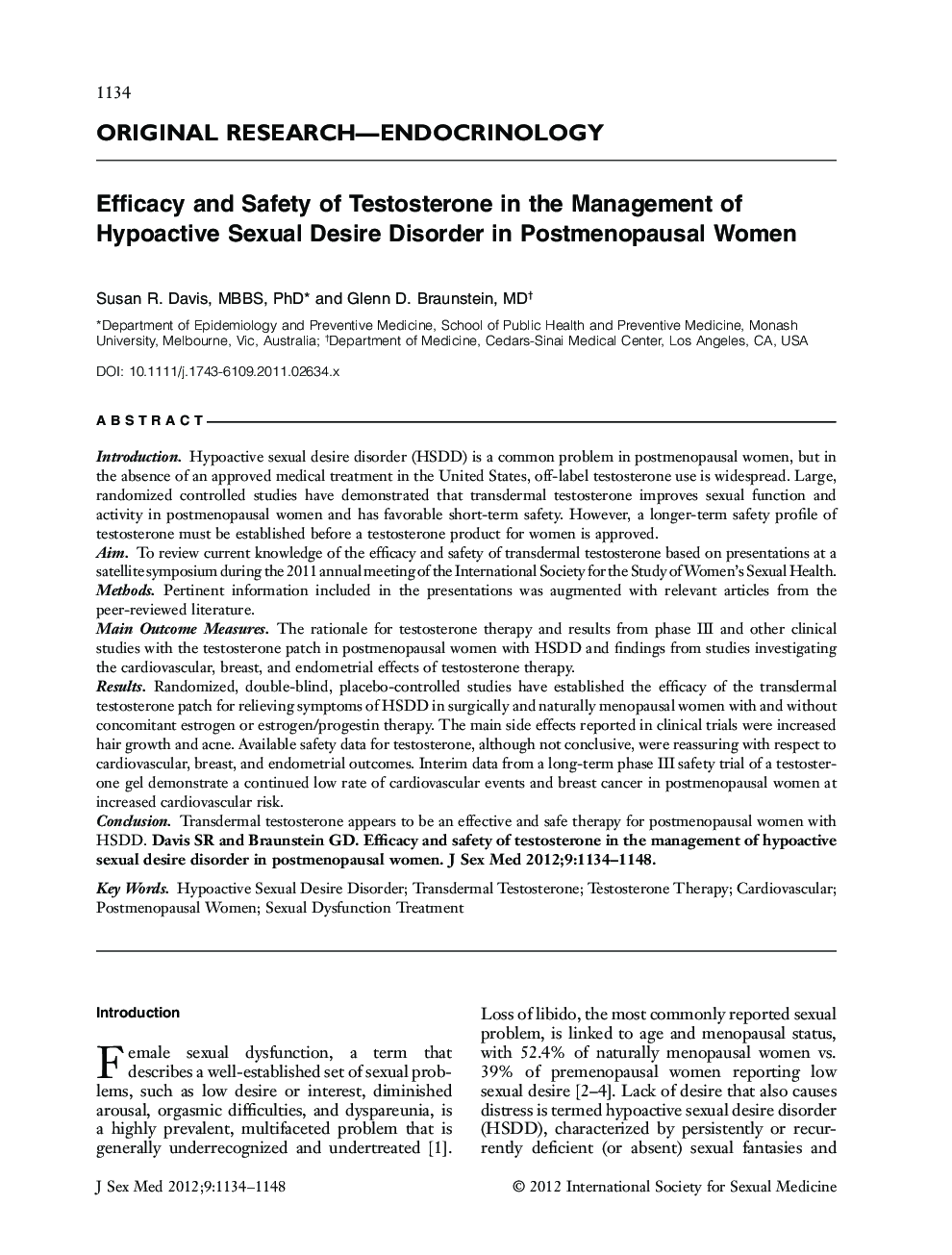| Article ID | Journal | Published Year | Pages | File Type |
|---|---|---|---|---|
| 4270678 | The Journal of Sexual Medicine | 2012 | 15 Pages |
ABSTRACTIntroductionHypoactive sexual desire disorder (HSDD) is a common problem in postmenopausal women, but in the absence of an approved medical treatment in the United States, off‐label testosterone use is widespread. Large, randomized controlled studies have demonstrated that transdermal testosterone improves sexual function and activity in postmenopausal women and has favorable short‐term safety. However, a longer‐term safety profile of testosterone must be established before a testosterone product for women is approved.AimTo review current knowledge of the efficacy and safety of transdermal testosterone based on presentations at a satellite symposium during the 2011 annual meeting of the International Society for the Study of Women's Sexual Health.MethodsPertinent information included in the presentations was augmented with relevant articles from the peer‐reviewed literature.Main Outcome MeasuresThe rationale for testosterone therapy and results from phase III and other clinical studies with the testosterone patch in postmenopausal women with HSDD and findings from studies investigating the cardiovascular, breast, and endometrial effects of testosterone therapy.ResultsRandomized, double‐blind, placebo‐controlled studies have established the efficacy of the transdermal testosterone patch for relieving symptoms of HSDD in surgically and naturally menopausal women with and without concomitant estrogen or estrogen/progestin therapy. The main side effects reported in clinical trials were increased hair growth and acne. Available safety data for testosterone, although not conclusive, were reassuring with respect to cardiovascular, breast, and endometrial outcomes. Interim data from a long‐term phase III safety trial of a testosterone gel demonstrate a continued low rate of cardiovascular events and breast cancer in postmenopausal women at increased cardiovascular risk.ConclusionTransdermal testosterone appears to be an effective and safe therapy for postmenopausal women with HSDD. Davis SR and Braunstein GD. Efficacy and safety of testosterone in the management of hypoactive sexual desire disorder in postmenopausal women. J Sex Med 12;9:1134–1148.
